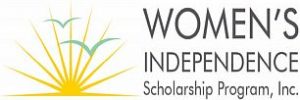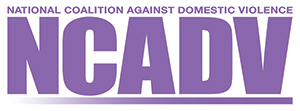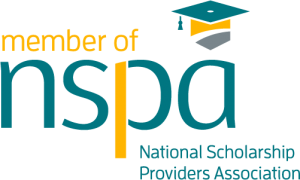We accept first-time applications twice a year.
January 1 – March 1
September 1 – November 1
We accept renewal applications once a year.
January 1- March 1
Awards range from $1,000 – $6,000 per academic year. Each application is reviewed and evaluated on an individual basis. Our first priority awards are for tuition, books and fees for undergraduate degrees. Our next priority is to assist in reducing indirect financial barriers to education (for example, childcare, transportation, etc.).
We consider programs at accredited institutions. Some examples of programs that have received funding include: Nursing, Teaching, Computer Technology, Computer Training, Law Enforcement, Theology, Equipment Handling, Physical Therapist, Social Work, Counseling, Hairdressing, Landscape Design, Journalism, Medical Billing, Massage Therapist.
Support is available for full or part-time students interested in attending accredited programs at educational institutions listed below.
- State supported community colleges
- State supported colleges or universities
- Technical/vocational schools
- Private colleges or universities
- For Profit colleges
A note about For Profit colleges. WISP considers higher education institutions that are owned and operated by profit-seeking businesses the lowest priority for funding, and discourages applicants from seeking an education at a for profit college if there are any other options. For profit colleges have been criticized for using high pressure sales tactics to enroll students, often have a high cost of tuition which dramatically increases student loan debt, and academics that do not always transfer to other educational programs. We strongly encourage all students to research for profit colleges and be aware of the drawbacks before enrolling.
No. We do not require students to attend college full-time (12+ credits). We believe each student knows how many classes they can add to their schedules.
Yes. Trades or technical schools may not have the same type of accreditation that we look for from a more traditional degree plan. Contact a scholarship coordinator to discuss your individual situation.
Yes. Eligibility requirements may differ slightly. We recommend that you call and talk with a scholarship coordinator to discuss your individual situation.
Scholarship Awards for tuition, books and fees are paid directly to the educational institution. This is our first priority for funding.
Charitable Adjunct Assistance Awards, for education-related living expenses that would otherwise be financial barriers to education, are paid to the sponsoring agency on behalf of the recipient.
Categories for spending are rent, utilities, transportation, childcare, basic household expenses, medical expenses (copays, therapy), school. We cannot assist with old credit card debt, legal fees, relocation expenses, large or past due medical bills, entertainment or gifts.
We are prohibited from making any awards payable to individuals. Scholarships are paid on a by semester/term/quarter/session basis.
No. We have transitioned to an online application and no longer accept paper copies.
A sponsor is a non-profit charitable organization with a 501(c)3 designation from the IRS that provides services to survivors of intimate partner abuse that has worked with the applicant for at least 6 consecutive months. This person agrees to partner with the scholarship applicant and WISP during the application process and throughout the applicant’s time in school.
First, we ask all sponsors to help us in the selection of suitable candidates.
Second, we ask that the sponsor make a commitment to assist you by providing ongoing support in the form of monthly in person meetings, referrals to community resources, help in navigating obstacles that come up, and checking on academic progress. We believe that the unique needs of a woman recovering from domestic violence are often best met by an agency with experience in that field.
Third, most of our financial assistance comes in the form of what we call Charitable Adjunct Assistance. These awards are for education-related living expenses that would otherwise be a barrier to your ability to attend school. We ask the sponsoring agency to act as a payee for these awards by accepting and tracking the spending of funds as they would any other grant. When we provide funds through a sponsor, we ask that they tell us, at the end of each academic term, how the funds were disbursed.
From time to time we may ask sponsors to help us evaluate the Women’s Independence Scholarship Program, so that we may constantly improve the way we serve and respond to survivors of intimate partner abuse.
Video trainings on what sponsors do and how sponsors help clients apply are available here.
It is the responsibility of the applicant to identify a nonprofit, domestic violence victim services provider willing to sponsor her for this program. You must have worked with the sponsor for at least 6 months. You may use this link to locate a domestic violence organization near you.
domesticshelters.org
We have found that many of our most successful scholarship recipients have a strong relationship with their sponsor. The sponsor can provide the necessary ongoing support, encouragement and advocacy to help you meet your educational and economic goals. We also rely on the sponsor for support in selecting candidates and administering funds.
Generally, we cannot assist with moving expenses. Keep in mind, this is a scholarship program primarily intended to assist with tuition, books and fees. Secondarily, funds are made available to assist in reducing financial barriers to education.
If your critical financial need is reduced with the addition of another wage-earner in the home, your eligibility for funding may change.
Most often, applications are declined for one of the following reasons:
- The applicant is not a direct survivor of intimate partner abuse.
- The applicant does not have a sponsor.
- The chosen course of study is not accredited, or is not job-training related.
- The applicant has not demonstrated critical financial need.
- The applicant is outside the United States.
- The application is incomplete.
Applications must be complete in order to move on to the review process. You will receive an error message that says you are missing 1 recommender if you attempt to submit before your sponsor has completed her/his/their part .
Every applicant is required to supply one letter of reference. This reference helps us to get a clearer picture of your goals, strengths and abilities. We recommend that you carefully select the individual you ask to provide your reference. People you might consider asking for a letter of reference include: an employer, a counselor or case manager you have worked with, a teacher, or anyone who knows you well and can comment on your abilities, desire and determination to complete your training or educational goals. To get a letter of reference, follow these steps:
- Ask someone to complete a letter of reference
- That person will email you the letter of reference
- Download/save the letter of reference that you have received
- Go to the “Attachments” page within the application, upload the letter of reference under letter of reference file type
We previously used a reference form. It is no longer required but you can use it if it is helpful.
It is important to know that your sponsor cannot be a reference.
No. Our renewal application is shorter and takes less time to review and approve.



